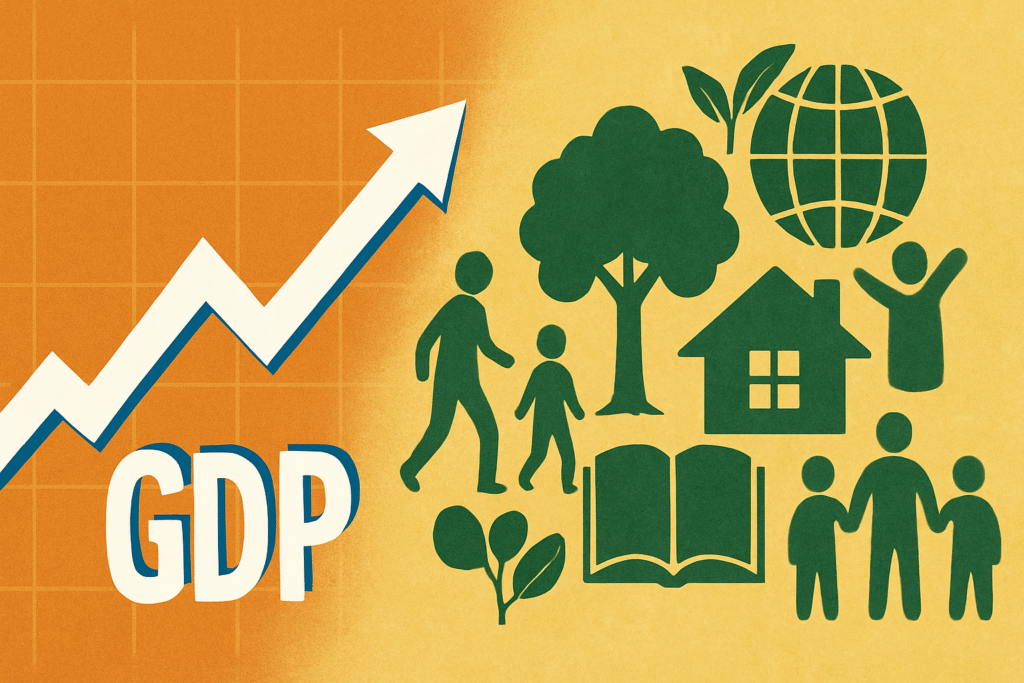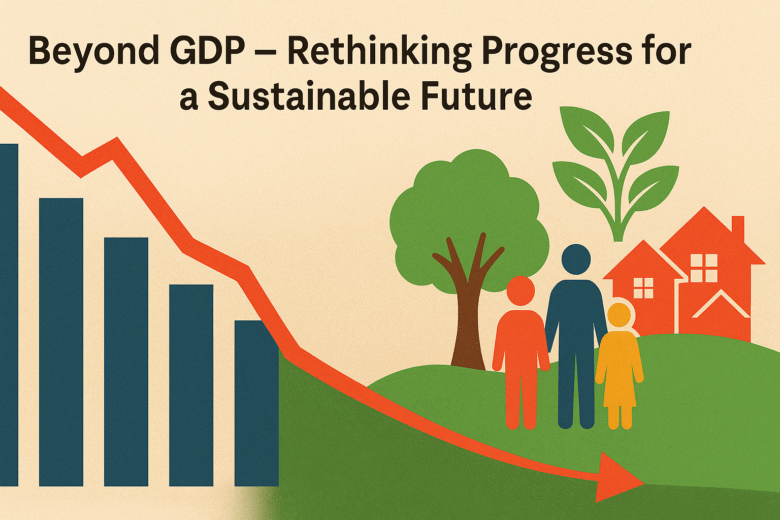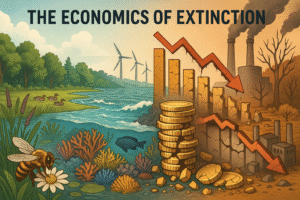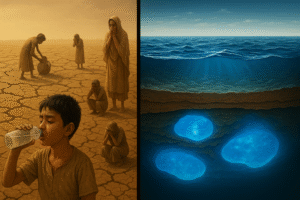Here’s a fun fact: when Gross Domestic Product (GDP) goes up after a devastating oil spill, economists cheer—because all the cleanup activity counts as “growth.” But do you feel better off when disasters, deforestation, or hospital visits are boosting “progress”?
That’s the paradox behind “Beyond GDP – Rethinking Progress for a Sustainable Future.” GDP was never designed to measure happiness, well-being, or sustainability—it was designed to measure output. Yet for decades, governments and media have worshipped it like gospel. The result? We celebrate rising GDP even while inequality grows, forests shrink, and climate anxiety skyrockets. It’s time we asked: what kind of progress are we chasing, and who is it really serving?
The Origins of GDP – and Its Blind Spots
GDP became popular during the Great Depression and World War II, as governments needed a tool to track industrial output. It measures the market value of all goods and services produced in a country. Simple, powerful, easy to compare. But here’s the catch:
- It ignores unpaid work, like caregiving, household labour, or volunteer service, which sustains communities.
- It rewards destruction—logging a forest adds to GDP, but protecting it doesn’t.
- It hides inequality—a billionaire’s luxury car and a poor family’s bus ticket both “grow the economy” without showing who actually benefits.
- It ignores sustainability—GDP doesn’t care if growth today destroys tomorrow’s resources.
As Nobel laureate Joseph Stiglitz once said, “What we measure affects what we do. If we measure the wrong thing, we will do the wrong thing.”
Why Economists Are Pushing Beyond GDP
In recent years, even mainstream economists and policymakers admit GDP is not enough. The United Nations Sustainable Development Goals (SDGs) call for models that reflect well-being, equity, and environmental health. Thinkers in India, too, argue for “inclusive wealth”—a metric that counts not just produced capital (factories, roads, machines) but also natural capital (forests, water, soil) and social capital (institutions, trust, community).
Why? Because you can’t call a nation wealthy if its rivers are poisoned, its people are malnourished, or its democracy is crumbling.
Case Study 1: Bhutan’s Gross National Happiness
Tiny Bhutan famously adopted Gross National Happiness (GNH) instead of GDP as its guiding star. It measures progress through well-being, cultural preservation, environment, and governance. While critics argue it’s idealistic, Bhutan’s forests remain intact, and the country’s carbon footprint is negative—a feat richer nations can only dream of.
Case Study 2: New Zealand’s Wellbeing Budget
In 2019, New Zealand launched a “Wellbeing Budget,” prioritizing mental health, child poverty reduction, and indigenous rights over raw GDP growth. This bold experiment recognized that high GDP can coexist with misery if mental health, housing, or equality are neglected.
Case Study 3: India’s Inclusive Wealth Push
In India, economists and policymakers are beginning to talk about metrics like the Inclusive Wealth Index, which tracks natural, human, and produced capital together. For a country with both rapid growth and deep inequality, this shift could mean revaluing forests, rivers, and traditional community bonds as true assets—not disposable obstacles to development.

The Sustainability Imperative
The climate crisis makes the GDP obsession dangerous. If a country boosts GDP by mining coal, building highways through forests, or overfishing seas, what good is that “growth” when the planet becomes uninhabitable? Progress cannot be measured by extraction alone—it must account for what we leave behind.
Example: India’s relentless GDP chase often celebrates coal output and infrastructure booms. But when Delhi’s air quality collapses or villages run out of groundwater, those “achievements” turn hollow. What we’re seeing is “growth” on borrowed time.
The Human Factor – Well-being Matters
Ask yourself: would you prefer to live in a country with:
- 8% GDP growth but poisoned rivers, congested cities, and rising suicides?
- Or 3% growth with clean air, universal healthcare, green jobs, and safe communities?
GDP doesn’t answer this. But well-being indices do. That’s why the world is experimenting with alternatives like:
- Human Development Index (HDI): ChatGPT said: It brings together measures of life expectancy, education, and income.
- Happy Planet Index (HPI): Measures well-being with ecological sustainability.
- OECD Better Life Index: Goes beyond economics to quality of life factors.
Why Governments Still Cling to GDP
Let’s be blunt: GDP is convenient. Politicians love simple numbers to brag about. Media loves headline-friendly growth rates. Investors love predictability. Complexity is hard to sell. So GDP, despite its flaws, remains the king.
But clinging to it is like judging a person’s health only by their weight. Sure, it tells you something. But it can also hide diabetes, stress, or malnutrition. GDP hides societal sickness while declaring economies “healthy.”
The Indian Context – A Crossroads Moment
India, with its demographic dividend and ecological fragility, stands at a crossroads. We can keep chasing double-digit GDP growth while rivers dry up, farmers protest, and cities choke—or we can pioneer a new model. Inclusive wealth, green accounting, and well-being indices could help India chart a development path that is both prosperous and sustainable.
This isn’t about rejecting growth—it’s about redefining it. After all, what use is being a $5 trillion economy if citizens can’t breathe the air, drink the water, or trust institutions?
Conclusion
Beyond GDP – Rethinking Progress for a Sustainable Future is not some academic debate—it’s a survival issue. GDP worship has blinded us to inequality, environmental collapse, and social fractures. True progress means ensuring well-being, inclusivity, and sustainability—not just swelling output.
If we keep chasing GDP alone, we’ll end up rich in numbers and poor in life. The challenge before us is to redefine success: not as growth for its own sake, but as growth that sustains people, planet, and peace.
Author’s Note
Writing about GDP always makes me feel uneasy—it’s a neat little number that hides messy realities. I believe India, and the world, deserve better yardsticks for progress. Maybe the question we should start asking isn’t “What’s the GDP growth this year?” but “Are people actually thriving?”
G.C., Ecosociosphere contributor.





Comments
We stumbled over here by a different page and thought I may as well check things out. I like what I see so now i am following you. Look forward to finding out about your web page yet again.